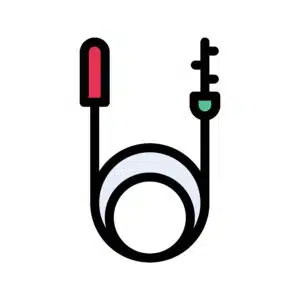By Cameron Koller, Marketing Development Manager, Parker Hannifin Quick Coupling Division As technology evolves, one challenge remains constant: heat. Servers, supercomputers, and data centers generate massive amounts of heat, with power densities often reaching 10 to 20 kilowatts per rack and, in some cases, significantly exceeding 50 kW in high-performance computing … [Read more...]
Augmenting Development of Electronics Cooling Technologies with Machine Learning Tools – a Heat Pipe System Example
The traditional pathway for development of thermal management technologies for electronics has been to analyze using heat transfer theory augmented by computational tools such as finite difference or finite element methods, CFD tools, or thermal management system simulation tools, sometimes in tandem with prototype system fabrication and testing. Combining recently available … [Read more...]
Tech Brief: Environmental Effects on Thermocouples
When selecting a sensor, one should consider whether the environment in which it is to be used will cause a measurement error. As part of this series on thermocouples, this article discusses a few environmental effects that can alter the structure of the materials that make up a thermocouple and thereby affect their accuracy. This degradation of thermocouple accuracy is … [Read more...]
Hydraulic and Thermal Characteristics of a Double-Sided Cold Plate – Part 2
Tesla Tear Down, CFD Validation, and Machine Learning to Determine the Performance Limit This study investigates the hydraulic and thermal characteristics of the TESLA AUTOPILOT HW2.5 MODEL 3 Y, which features a double-sided cold plate with PCBs attached on both sides. We present a step-by-step teardown process of the unit, measuring internal dimensions, fin locations, … [Read more...]
A New Patented Approach to Diffusion Bonding Offers Speed and Improved Process Control
An innovative process is reducing diffusion bonding time of aluminum and aluminum alloys by up to 50%, energy use by 30%, and improving quality. Contract manufacturers and design engineers in the aerospace, semiconductor, high-power electronics, and energy industries have been turning to diffusion bonded metals to produce new cutting-edge innovations. Diffusion bonding is … [Read more...]








